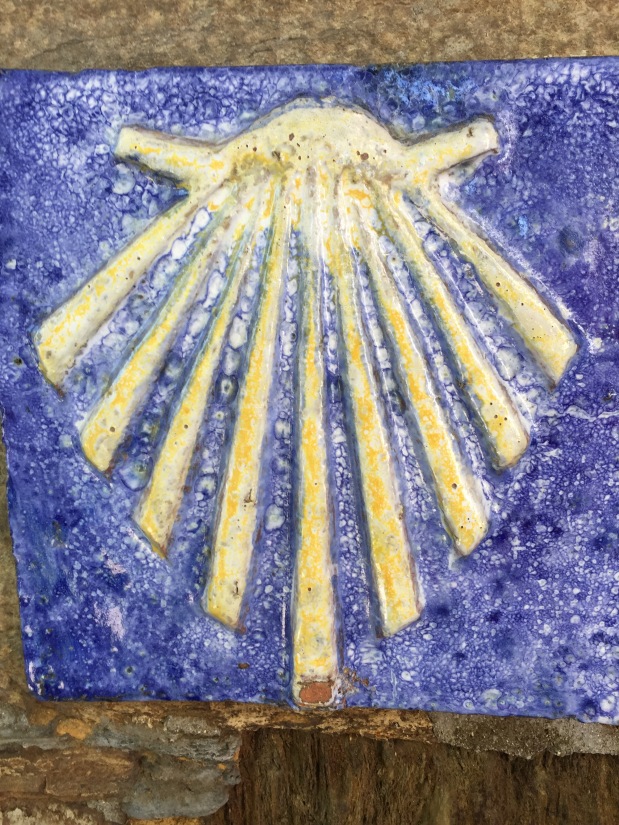My time on the Way of Saint James is already fading into memory. The lessons learned, however, are something that I am trying to apply on a daily basis. One of the basic practices on the Camino is the practice of hospitality and kindness. Wikipedia says that “Kindness is a behavior marked by ethical characteristics, a pleasant disposition, and a concern for others. It is known as a virtue, and is recognized as a value in many cultures.” kindness and hospitality go hand in hand.
This seems like a basic idea, but unfortunately, where I live in North America, the practice of kindness and real hospitality is slowly disappearing. It seems like people are too busy, and too wrapped up in “self” to pay attention to “other life travelers.” Theologian William Barclay once said, “More people have been brought into the church by the kindness of real Christian love than by all the theological arguments in the world.” Hospitality, for the most part, is alive and well practiced on the Camino de Santiago.
Hospitality, the practice of caring for another person, has been part of the Christian heritage since the beginning of the Hebrew Bible. One of my favorite stories of hospitality is in Genesis 18 when Abraham is visited by the three strangers. He offered hospitality and discovered that he was entertaining the ambassadors of God.
My experience on the Camino was filled with hospitality, welcome and wonder. Small gestures empowered those of us who were pilgrims to go the distance. First, there was the language barrier itself. I do not speak Spanish, I wish I did. While I have a few words under my belt, there were many times when a shop owner or someone I met in the street would patiently try to help me out, in spite of the language barrier. I saw more than one shop keeper go outside of their shop and show directions to an inquiring pilgrim.
The host at the Auberge in Saint Jean Pied de Port was another one who went out of his way. He and his wife not only made us dinner, for a small fee, but they had all of their guests share some of their story. That evening the owners turned us into family, which was a gift as we began our walk on the Camino. All along the route we would run into other “members of the family” from our first night; that all happened due to great hospitality.
The man collecting garbage in Pamplona exhibited another act of kindness when he called to me and my walking friend asking, “Are you pilgrims?” We replied yes, and he told us we had missed the turn a block beyond where we were. He went out of his way to ensure we would not get lost.
Or, there was the woman who sold me an orange in the heat of the day, and she came outside of her shop where I was sitting to ask if the orange was good! (Yes, it was delicious.) Over and over again, from the ones who hosted in the hostels to the food servers to the law enforcement riding their horses in the Basque country, people went out of their way to be kind.
Another hostel is run by the English Society of the Way of Saint James. Volunteers come there to serve for two weeks at a time. They volunteer to run the place, and they offer to massage sore feet as well! There are hostels that run just from the donations you are willing to give, and others that help you all make a meal together. Hospitality is astounding and welcoming.
We have lost this art of hospitality in the busyness of our societies. While it is true that some say walking the Camino is like living in a bubble, we can at least take these lessons learned and apply them to become changed lives in our own neighborhoods and work places. In order to make these part of our daily routine, we have to slow down, and take time to talk to people, and hear their stories.
The very of nature of exhibiting kindness to another person makes that person have a sense of worth and usefulness. By exhibiting kindness to another person we are affirming their worth as a person, we are telling them that they are important enough for us to be inconvenienced, by them or that we would give them special attention. It is also closely related to being gentle.
Jesus modeled the practice of welcoming the stranger and the practice of hospitality to those who felt unwelcome, and unworthy. How can we bring this practice back into our own lives? I think a challenge is in order. What would it look like to “outkind” your friend, or your family members? What would it look like to have a “kindness contest” on a regular basis? I believe we can change the course of our future by offering hospitality and kindness, and it can begin with us. Where can you begin to plant those seeds of kindness?

